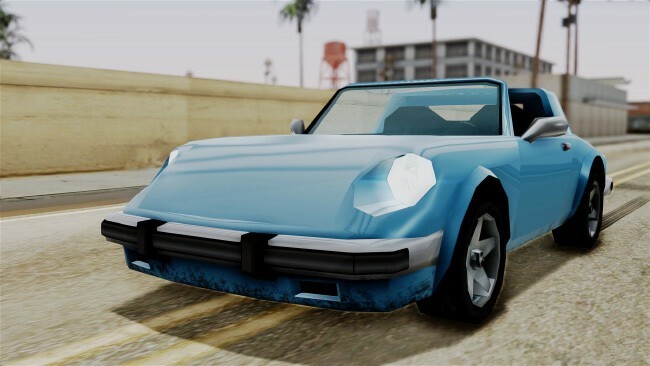Pesticides can be useful and dangerous. They are necessary for farmers to protect plants from insect pests, fungi, mold and other threats. In this case, the dose of pesticides contained in the product affects its toxicity. In small doses pesticides can be harmless, but if they accumulate in the human body, then this is clearly not good for health. However, the long-term consequences of eating food with pesticides on a daily basis are unknown.
Environmental Organization Environmental Working Group( EWG) from the United States has released the annual Dirty Dozen - rating of the most polluted plant products .It is published since 1993 and it is taken into account when drawing up recommendations on the diet many famous doctors and medical organizations, including the American Academy of Pediatrics.
 A total of 48 most popular fruits and vegetables were analyzed, and 70% of them found traces of at least one chemical. At the same time, more than 98 percent of the samples of strawberries, spinach, peaches, nectarines, cherries and apples gave a positive result on traces of at least one pesticide. Remains of pesticides remained on fruits and vegetables, even after they were washed and, in some cases, cleaned. We present to you the top 10 products with the highest content of pesticides according to EWG data of 2017.
A total of 48 most popular fruits and vegetables were analyzed, and 70% of them found traces of at least one chemical. At the same time, more than 98 percent of the samples of strawberries, spinach, peaches, nectarines, cherries and apples gave a positive result on traces of at least one pesticide. Remains of pesticides remained on fruits and vegetables, even after they were washed and, in some cases, cleaned. We present to you the top 10 products with the highest content of pesticides according to EWG data of 2017.
Contents:
- 10. Tomatoes
- 9. Celery
- 8. Grapes
- 7. Cherry
- 6. Pears
- 5. Peaches
- 4. Apples
- 3. Nectarines
- 2. Spinach
- 1. Strawberry
- Video version of last year's product rating with pesticides
10. Tomatoes
Opens the "dirty" top ten product, without which the majority of salad recipes is unthinkable. In Dirty Dozen in 2016 he took the ninth line.
9. Celery
In 2016 this vegetable was in the fifth place. Well, in the case of Dirty Dozen, the farther from the first position the product is, the better for those who eat it.
8. Grapes
Moved from the sixth place in last year's ranking to the eighth. It means that in the EWG clusters of grapes traces of pesticides were less in comparison with the data of 2016.
7. Cherry
Persistent pesticide soldier - as was on the 7th place in 2016, and remained on it in the current list.
6. Pears
More than half of the samples examined contained traces of five or more different pesticides. Including carbendasim acetamiprid, imidacloprid and diphenylamine.
5. Peaches
In 2016 peaches were on the fourth place in the pesticide anti-rating. This year they are less harmful to health substances, which can not but please fans of these fruits.
4.
apples Last year, apples were in second place in Dirty Dozen, and before that they were the leaders of the list for five years. This year they were only on the fourth line, losing first place to strawberries.
3. Nectarines
Almost all of the samples of these tasty and juicy fruits tested positive for the presence of at least one pesticide.
2. Spinach
Spinach samples had, on average, twice as many pesticide residues as weight than any other vegetable or fruit that were tested in the Dirty Dozen study. Three-fourths of the spinach samples contained the remains of DDT, a neurotoxic insecticide. According to recent studies, he causes behavioral disorders in young children. Nevertheless, most pesticides found in spinach samples are considered safe
1. Strawberry
Tops the rating of "dirty" plant products loved by many false berry( in fact, strawberries belong to polyurethanes).In one of the investigated lots of strawberries contained 20 different pesticides. What explains the staggeringly large number of pesticides in small strawberries? Low season demand. Once strawberries produced a seasonal, limited crop, but intensive use of pesticides allowed to increase yield and stretch the growing season. In California, where the majority of American strawberries are grown, for each acre, 135 kg of pesticides are processed.
And the cleanest were: sugar corn, avocado, pineapple, cabbage, onion, frozen sweet peas, papaya, asparagus, mango and eggplant. Only 1% of the samples of avocado and sweet corn contained any identifiable pesticides, so they are recognized as the purest products.
The EWG rating is aimed at targeting buyers for the purchase of the cleanest products in terms of the content of chemicals. EWG experts urge buying organic products( that is, without GMOs, synthetic chemicals and fertilizers).This is especially important for pregnant women and families with children, since even a low level of exposure to pesticides can be harmful to a fragile or severely stressed organism. But if your budget does not allow you to buy organic products often or they are rarely on sale, this selection of "clean" and "dirty" products will help to minimize the consumption of the most contaminated fruits and vegetables.



